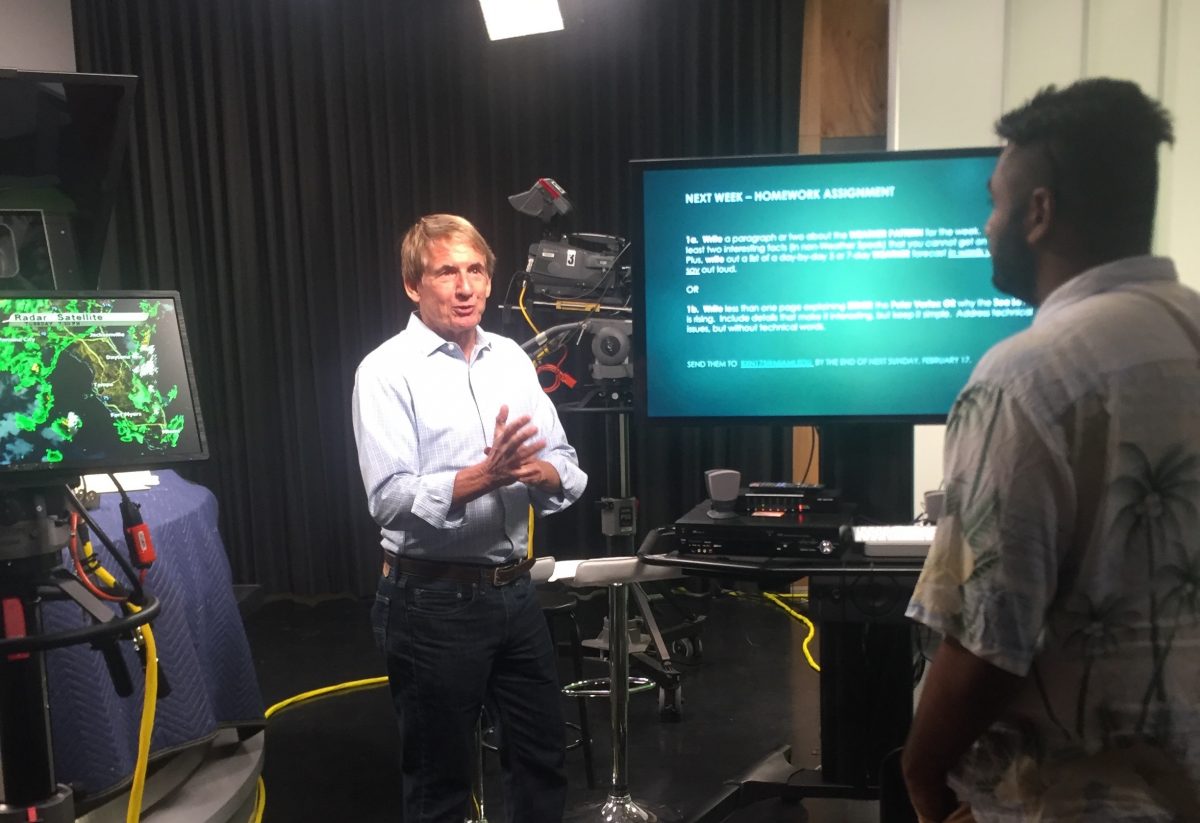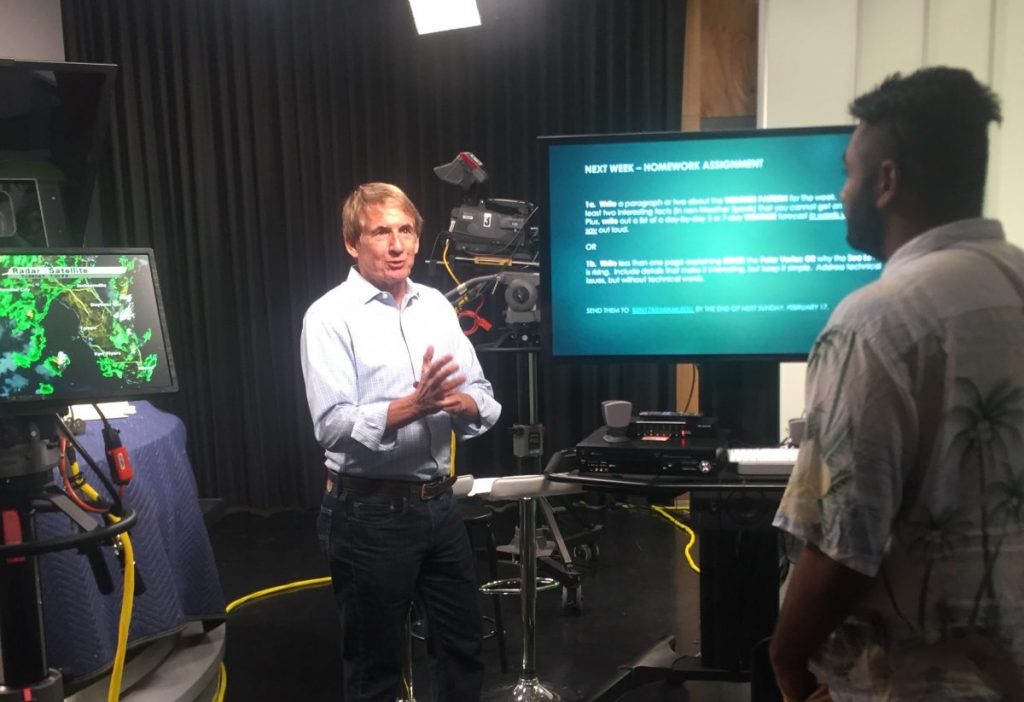

Bryan Norcross, renowned broadcast meteorologist and hurricane specialist, is now an adjunct professor of environmental reporting and advanced weathercasting at the University of Miami.
His classroom mantra? “Storytelling equates to good reporting.”
Dave Downey, a sophomore majoring in meteorology and broadcast journalism, said he enjoys Norcross’s unconventional approach to teaching.
“I don’t think there’s a more pinnacle guy in Miami to take a weather-casting class from than Bryan Norcross,” said Downey. “He is a household name here in South Florida and has a different take to teaching environmental reporting. We don’t just stand in front of a green screen for two hours, we have assignments outside of class and we also learn how to master the art of storytelling.”
Norcross gained national attention for his groundbreaking reporting on Hurricane Andrew in 1992. At the time, he was the chief meteorologist for WTVJ-TV, an NBC owned-and-operated TV station in Miami. Norcross has been at the forefront of severe weather coverage for decades. In recent years, Norcross served as the senior hurricane specialist for The Weather Channel in Atlanta.
“The way that I got interested in hurricanes was not through meteorology,” Norcross said. “It was because I ended up doing a lot of stories about Miami and South Florida history, and through that process, I learned that you can’t study about South Florida history without studying hurricanes.”
After he became chief meteorologist, Norcross spent two and a half years investigating hurricanes. When Hurricane Andrew rocked South Florida in 1992, Norcross was able to apply everything he had learned.
In addition to teaching at UM, Norcross is currently a hurricane specialist at WPLG-TV Channel 10 in Miami. He also writes columns for The Washington Post’s online weather page, Capital Weather Gang. In addition, Norcross is working on his second book. His first book, “My Hurricane Andrew Story” came out in 2017 and is a memoir that details his experiences during one of the worst hurricanes to hit Florida.
Sean Macaday, a senior majoring in meteorology and marine science, said he is planning on becoming a broadcast meteorologist. When he learned that Norcross was teaching this new class, he enrolled instantly.
“Bryan Norcross is an absolute legend to me,” Macaday said. “He is also an amazing storyteller. I am forever thankful that I am able to learn from the best.”
The course aims to refine students’ weather-presentation skills and broaden their understanding of meteorology. Many topics and skills overlap between the two displipines, Norcross said. Thus, environmental reporting students will learn live presentation skills, and weather-casting and meteorology students will learn the elements of storytelling.
“Storytelling is important because people are difficult to relate to if you can’t tell a story,” Norcross said. “A person who is relatable has an ability to tell some kind of story, and usually that involves making a point that they know how to lead you to mentally.”
Norcross said a lot of what he discusses with students revolves around two questions: “What is the point that you’re trying to make?” and “How can we make a series of information informative and engaging?”
Tej Joshi, a senior majoring in broadcast journalism, said he is taking the course to gain more knowledge on environmental journalism and how to report in a way that keeps viewers engaged.
“As the only student in the class who is specifically on the journalism track, I feel that it is imperative for me to expand my range and learn more about environmentalism,” Joshi said. “It’s fun to cover sports and food, however, you have to learn how to report on more serious issues like hard news, politics and of course the environment.”
Norcross said that by taking this course, students will produce professional-level work and develop skills in communicating technical information. He also said the hands-on training within the course can demonstrate students’ skills to potential employers.
Departing from traditional reporting classes, Norcross is less focused on teaching students about the technological devices used within a newsroom and more focused on how to tell stories that connect with the viewers.
“Norcross teaches us how to merge science with the skill of putting together a coherent story and eventually delivering that out to the public,” Macaday said. “This convergence can be applied to almost any profession, which is very helpful in the long run.”
Norcross also gives his students guidance on how to follow current events and weather conditions both locally, nationally and internationally.
“By thinking about it in terms of the story, instead of in terms of the maps, you’ll be more relatable,” Norcross said. “I want students to learn the mechanical and the philosophical skills of telling stories.”






